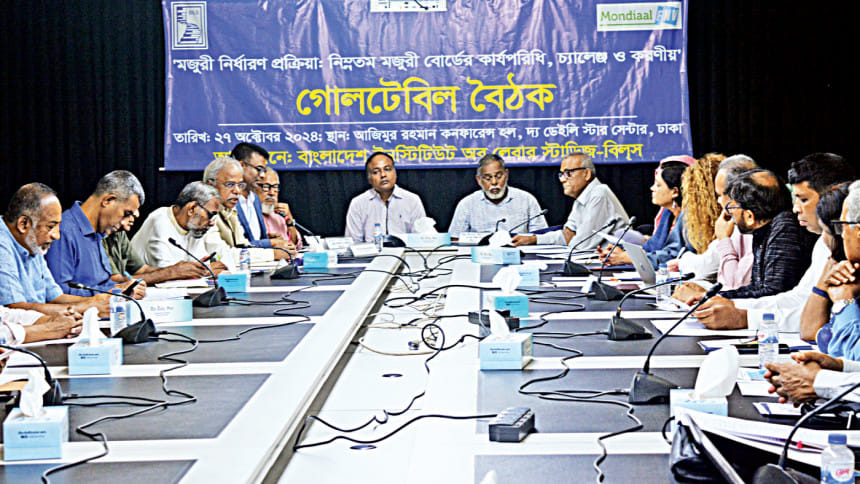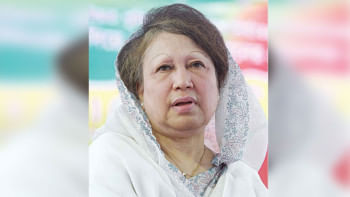Minimum Wage Board lacks data, transparency: experts

The Minimum Wage Board, a government regulatory agency responsible for recommending changes to the minimum wage in different sectors, operates with limited data, which could lead to a lack of transparency and fairness in the wage-setting process, according to labour rights activists and experts.
"The board's data limitation complicates assessments of employers' ability to pay and broader productivity issues," said Mostafiz Ahmed, associate professor of social work at Jagannath University.
"The regulatory agency should establish a dedicated research wing to address the issue," Ahmed said at an event, titled "Wage Determination of Minimum Wage Board: Scope, Challenges and Way Forward", organised by the Bangladesh Institute of Labour Studies (BILS) at The Daily Star Centre in Dhaka yesterday.
In his keynote presentation, Ahmed said that the wage-setting process may not have transparency and fairness without clear calculations and economic justifications.
Experts pointed out that 20 of the 42 sectors have not seen regular wage increases for periods ranging from 6 to 40 years
This, he said, could lead to dissatisfaction among both workers and employers.
The Minimum Wage Board, the statutory body responsible for setting private sector wages under the Bangladesh Labour Act 2006, receives and reviews feedback on recommended wage rates for 42 sectors, adjusting them as necessary.
According to different labour rights organisations, there are around 6.50 crore workers in these sectors.
However, the highest employing sector in the country, agriculture, does not have a determined minimum wage. Wages in local farming are determined by the demand and supply of labour, while other sectors show substantial minimum wage gaps.
Ahmed pointed out that 20 of the 42 sectors have not seen regular wage increases for periods ranging from 6 to 40 years.
"Two sectors have seen no revision in the past 35 years, while wage revisions in eight sectors have been overdue for 10-15 years, and in 10 sectors for 6-9 years."
He called for revising sectoral wages every five years.
Ahmed also highlighted that the Minimum Wage Board's workplace inspections lack a standardised format.
Without consistent guidelines, inspections may be less effective and the collected data might not provide a reliable foundation for decision-making, he added.
He also recommended expanding the board's human resources to enable more effective operations.
He proposed several reforms, including establishing a national minimum wage, democratising the selection of Minimum Wage Board representatives, setting criteria for independent members and improving sectoral representation and accountability.
Ahmed also recommended regular wage reviews, fixed meeting schedules and publishing proceedings on the board's website to keep workers and stakeholders informed.
He said that although the wage announcement is supposed to come within six months after the formation of the wage board, in this case it takes twice or thrice as long, or even more.
In this case, the question remains as to what kind of policy determines the selection of board members, he added.
Anwar Hossain, vice-chairman of the BILS, said that the attitude of depriving workers should be overcome, and their quality of life, economic empowerment, market conditions, price increases, and other factors should be taken into consideration.
Nazma Akter, a union leader in the garment sector for more than 35 years and now the president of the Sammilito Garment Sramik Federation, said workers cannot be deprived of fair wages in the name of protecting the industry's existence.
She said the government will have to come forward to fix a living wage, considering the participation of employers and workers in the country's economic development.
Mamunur Rashid, chairman of the Minimum Wages Board, said the board has to work within its limitations.
He said that workers cannot uphold their rights as strongly as owners and that owners should therefore be more worker-friendly.

 For all latest news, follow The Daily Star's Google News channel.
For all latest news, follow The Daily Star's Google News channel. 



Comments